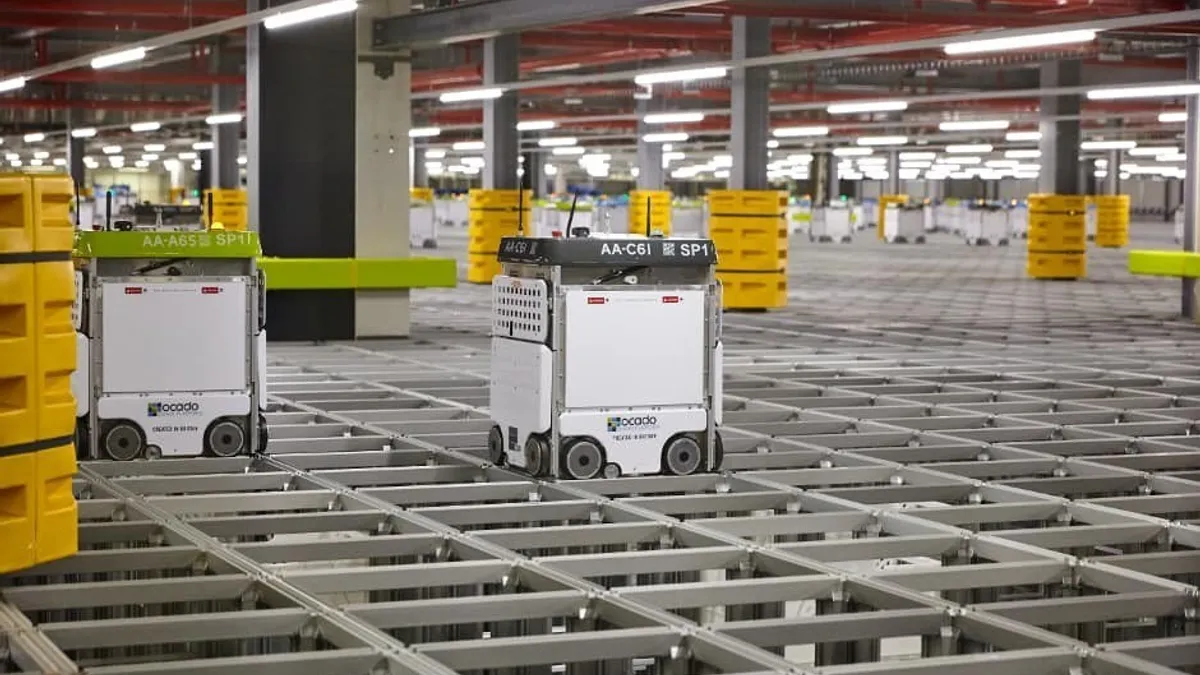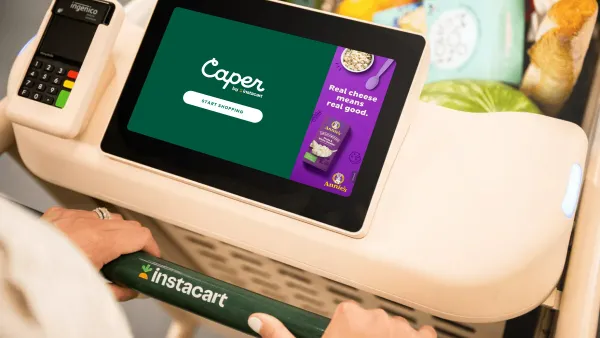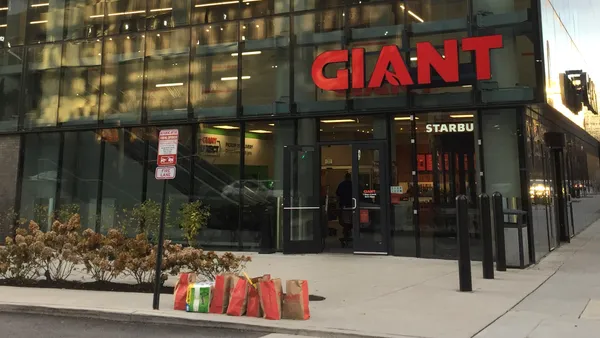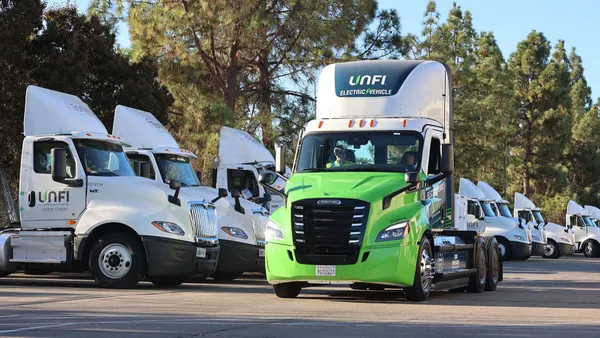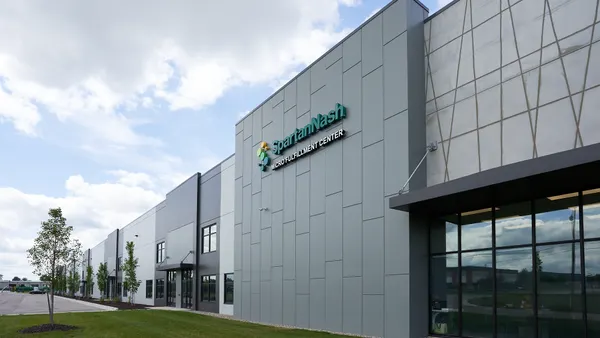Dive Brief:
- AutoStore, a Norwegian developer of technology used to automatically fulfill online grocery orders, has stepped up its patent dispute against Ocado by filing an entitlement action in the United Kingdom accusing the U.K.-based robotics company of filing for patents using AutoStore-owned intellectual property, according to a press release.
- The lawsuit, which claims Ocado obtained patents in the U.K. relating to optimizing the placement of products within an automated storage and retrieval system and to safety systems that stop robots, follows patent-related suits AutoStore filed against Ocado in the United States and the U.K. in October.
- Ocado is facing legal action over the validity of patents connected to essential components of its Ocado Smart Platform as it works on robotic fulfillment facilities for grocers including Kroger, for which it is building a network of automated warehouses that are set to debut next year.
Dive Insight:
AutoStore is not mincing words as it proceeds with its legal offensive against Ocado. The robotics company claims Ocado applied for patents for technologies invented by AutoStore after gaining access to the technologies as an AutoStore customer in 2011 and 2012. Ocado listed executives including CEO Tim Steiner as inventors in patent applications starting in June 2014, according to AutoStore.
“Ocado took advantage of being our customer and having access to AutoStore's market-leading technology and then attempted to assert ownership over what it had learned from AutoStore by filing its own patents,” AutoStore CEO Karl Johan Lier said in a statement.
The applications are still pending in Europe, but officials in the United Kingdom granted the patents to Ocado in 2018 and 2019, AutoStore said.
According to AutoStore, the company thought it was working with Ocado in “good faith” when it permitted Ocado executives and engineers to inspect an AutoStore system, allowed Ocado to test certain AutoStore software and hardware, and provided training in the operation of its technology.
AutoStore filed the entitlement action in the U.K.’s Intellectual Property Office and expects it to be transferred to the High Court of England & Wales. Specifically, AutoStore wants authorities to declare that it is the “true owner” of the patents in question, assign it the patents and specify that none of the Ocado employees named as inventors in the patents “was in fact the inventor or has the right to be named as such.”
In a statement released in response to the initial legal volley in October, when AutoStore also accused Ocado of violating its intellectual property rights, Ocado said it had no reason to believe that “any infringement of any valid AutoStore rights has taken place.” The company added at the time that it would examine whether AutoStore had violated its patents.
Ocado has sought to bolster its technological capabilities even as AutoStore has mounted a legal campaign aimed at undermining Ocado’s ability to supply robotic fulfillment systems to its customers.
Earlier in November, Ocado announced it was purchasing a pair of North American robotics companies, one with expertise in artificial intelligence-powered vision and motion control and the other a specialist in the development of low-cost robot arms. In October, the company bought a minority position in Myrmex, a maker of automated click-and-collect systems.



